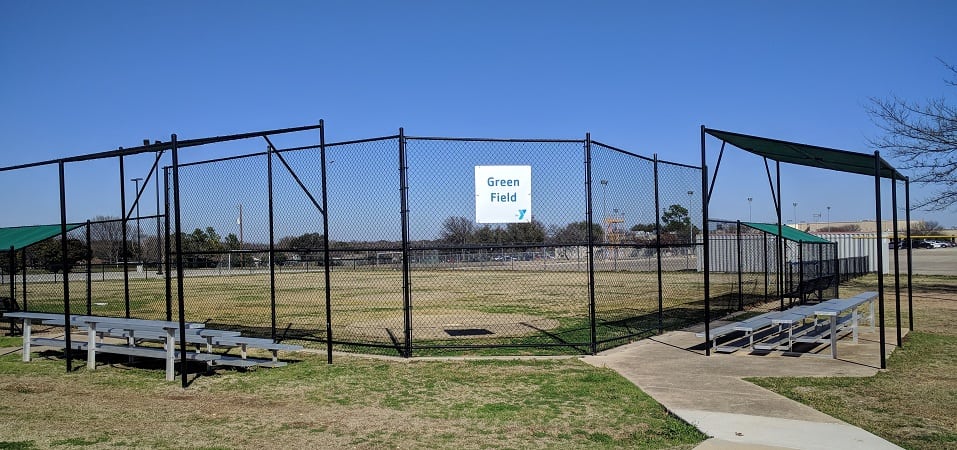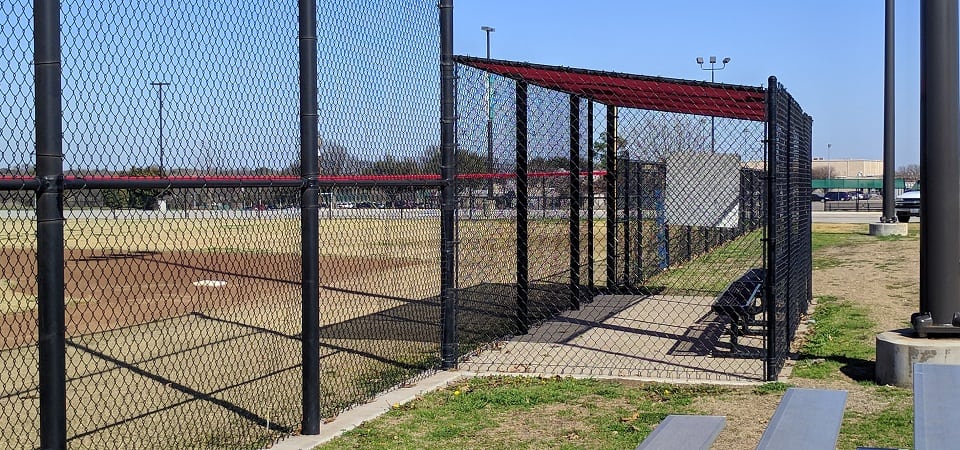Softball and baseball are the true joys of summer for many. Whether you’re gearing up to play, excited to watch, or managing your fantasy league team, these sports offer something for everyone. For enthusiasts looking to bring the game to life, Buzz Custom Fence is your go-to for meeting softball field regulations and more. Continue reading to experience the thrill of the game in your own backyard.
What’s the difference, anyway?
Before we go on, let’s make sure we all know the difference between softball and baseball. The sports are similar – hitting a ball with a bat, running around bases – but there are a few crucial differences:
- Ball size: Softballs are bigger than baseballs – about 12 inches in circumference versus about 9 inches. Guess what? They’re slightly softer, too. Young kids’ teams may use even smaller and softer softballs than the standard.
- Pitching mounds: Softball pitchers are level with the batters. Baseball pitchers stand on a mound.
- Pitching motion: Softball pitchers throw underhand. Baseball allows overhand or sidearm pitches.
- Base paths: Bases are closer together in softball than in baseball.
All Hail the World Baseball Softball Confederation

Don’t think sports are all fun and games. Baseball and softball have a governing body: The World Baseball Softball Confederation, headquartered in the Olympic Capital city of Lausanne, Switzerland. Not only does it govern international competitions, it sets the standards for field size.
We know, when you were a kid you and your friends batted some sort of substandard ball on a vacant lot. Maybe you even used a broomstick instead of a bat. But times have changed, so let’s look at the regulations.
Baseball Field Dimensions
The major and minor leagues use similar standard field dimensions. The infield is a 90-foot square. There must be at least 250 feet between home plate and the nearest fence or other obstruction. The pitcher’s mound is ten inches higher than home plate. Home plate should be 127 feet, 3 3 /8 inches from second base.
Okay, we’ll spare you further details, since 127 feet, 3 3/8 inches was painful enough to read. With all due respect, oh great World Baseball Softball Confederation, what about the most important part of a baseball field? The fences?
For fence height recommendations, we turn to the National Collegiate Athletic Association, whose priorities are more in line with ours. The NCAA recommends a “solid and secure” outfield fence for college baseball fields. The preferred height is eight feet tall, but six will do in a pinch. The NCAA discourages nylon fences and wooden fences built with 1×4 inch boards as they can be unsafe.
Softball Field Dimensions
What if you’re playing with that bigger, softer ball? The distance between bases is 60 feet. The pitching distance is usually 46 feet. Little League softball players use the same size fields.

Again, we turn to the NCAA for its advice on softball fences. The NCAA suggests a 6-foot home-run fence. It also recommends that the dugout’s field side is protected by fencing or netting not less than six feet from the dugout floor, except for designated exits and entrances.

Home batting cages
No matter how much you love bat sports, you may not have space at home for a regulation field. Don’t worry, you can still practice your hitting with a home batting cage.

The ideal batting cage is 70 feet long, 14 feet wide and 12 feet high. The taller and wider the batting tunnel, the better, as you can track the ball flight. In a shorter, smaller cage, the netting will knock the ball down quickly.
Yes, we’re talking about a good chunk of yard. If your player is under six feet tall and you’re pressed for space, a cage as small as 45’ by 11’ by 11’ is adequate for short toss drills.
Enhancing Your Field with Buzz Custom Fence
With years of experience in sports fencing, Buzz Custom Fence is your go-to partner for bringing your baseball or softball field up to regulation standards. Whether you’re installing a new fence or upgrading an existing one, our team ensures that every aspect of your sports fencing meets the necessary regulations and exceeds your expectations. Learn how we can transform your field into a regulation-compliant, safe, and visually appealing sports venue.
Adhering to softball and baseball field regulations is essential for the safety and enjoyment of all players and spectators. By choosing the right fence and ensuring it meets the required standards, you can create a sports facility that stands the test of time. Contact Buzz Custom Fence today to find out how we can assist you in making your baseball or softball field dream a reality.

